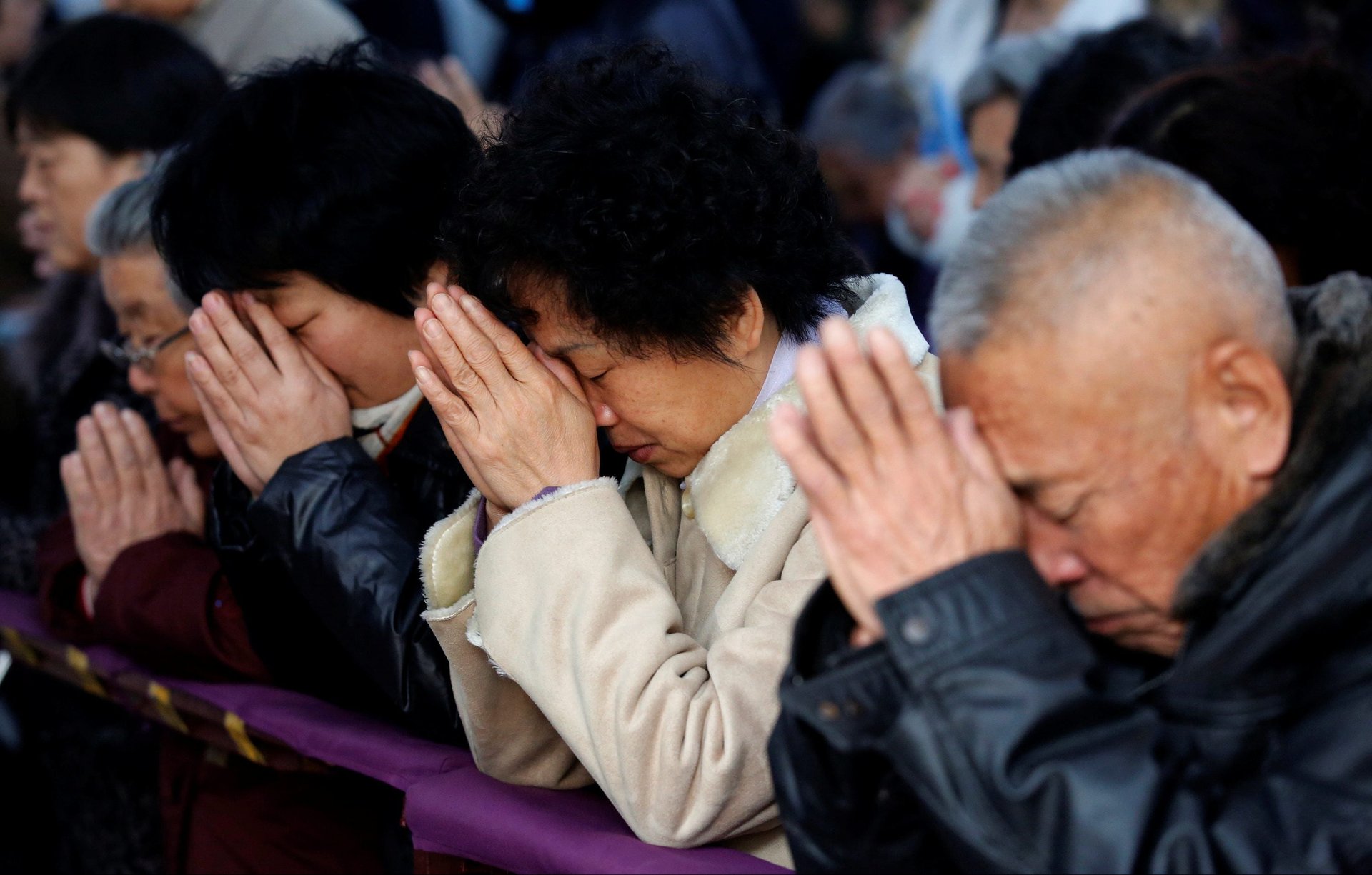Officially, China’s Communist Party believes in atheism, but it makes an exception for two religions
China has for decades feared the power of organized religion. But religious suppression has intensified in recent years under the rule of president Xi Jinping—alongside a broader crackdown on civil society—according to a report (pdf) by Freedom House released yesterday (Feb. 28). For example, Chinese authorities have systematically been destroying churches and taking down crosses, while persecution against Muslims in the western Xinjiang region has become “very high.”


China has for decades feared the power of organized religion. But religious suppression has intensified in recent years under the rule of president Xi Jinping—alongside a broader crackdown on civil society—according to a report (pdf) by Freedom House released yesterday (Feb. 28). For example, Chinese authorities have systematically been destroying churches and taking down crosses, while persecution against Muslims in the western Xinjiang region has become “very high.”
Buddhism and Taoism, however, are different. As “Asian religions,” the party is able to “harness China’s religious and cultural traditions to shore up [the party’s] legitimacy,” says Freedom House, and at the same time use them to “help contain” the spread of Christianity and Islam. The latter two religions are viewed as “so-called Western values” by the party, according to Freedom House.
The preference for Taoism and Buddhism over other faiths fits with the larger crackdown by Xi against Western ideas in China. In education, the Chinese government is purging Western ideas like democracy and replacing them with Confucianism, which emphasizes obedience. Xi has also urged families to educate their children with imperatives like “love the party” while cracking down on international-style education. According to Freedom House, Buddhism and Taoism are in line with the party’s signature campaigns, the “China Dream” and the “great rejuvenation of the Chinese nation.” Those two faiths are compatible with the government’s “Sinicization” drive, says the NGO.
But religion has been gaining ground in China in spite of the government’s efforts. China is undergoing “one of the world’s great spiritual revivals,” according to a recent book by long-time China journalist Ian Johnson. And an increasing number of Chinese view religion as a way to escape the iron grip of the Communist party—Christianity, for example, is seen by many higher-income Chinese people as a symbol of modernity and Western prosperity, says Freedom House.
Freedom House said it did not have data on the number of Taoists in the country.
And Beijing’s heavy-handedness has actually reinforced solidarity among religious groups, according to Freedom House. The relentless crackdown on Christianity has brought Catholic and Protestant groups closer together. Ties have also grown stronger between the “official” state-sanctioned Church and illicit underground churches. “The cross-removal campaign has been especially pivotal as a unifying force for China’s Christians,” says the report.